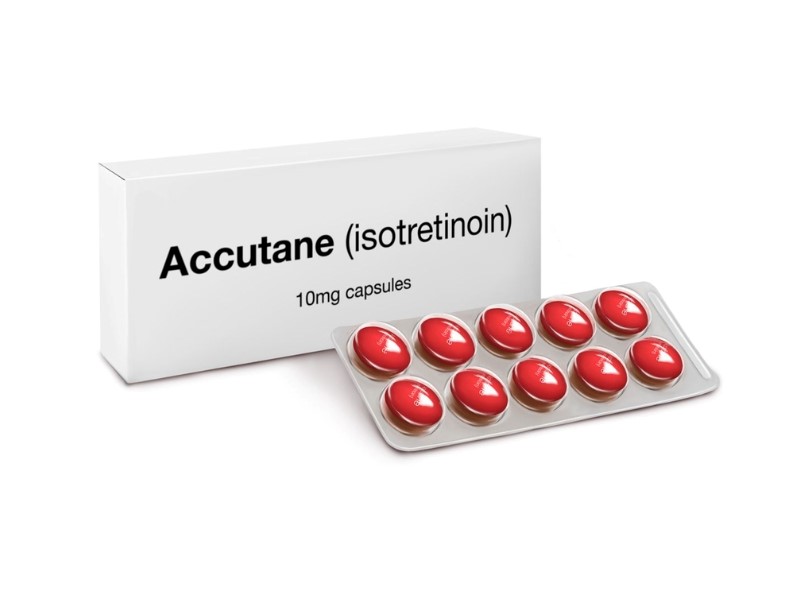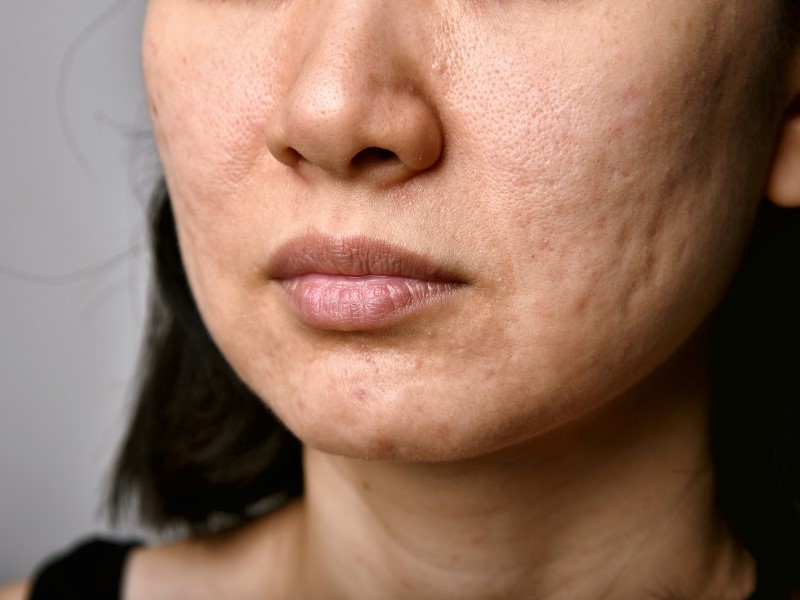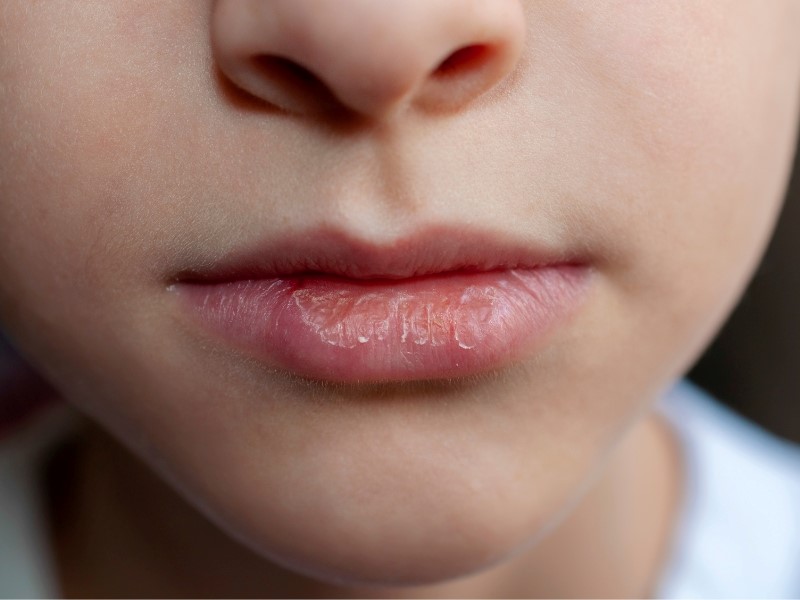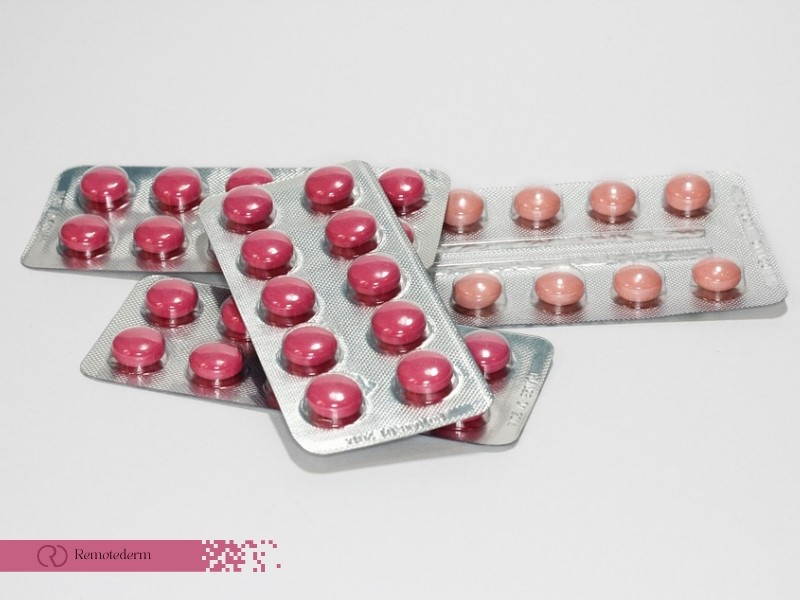Accutane is a widely prescribed medication, known for its effectiveness in reducing acne breakouts. However, the drug is also associated with potential side effects and risks, so it is crucial to be well-informed before deciding to take it. This article will discuss how accutane works as well as its potential side effects, and tips to reduce them.
What is Accutane?
Accutane, also referred to as isotretinoin, is a prescription drug used to treat severe acne. It is a retinoid medication that reduces the amount of oil produced by the skin. Excess oil production can clog pores and contribute to the development of acne, so this can help prevent it from forming.
Accutane is typically taken as a pill, and the dosage is determined by the severity of the acne as well as the individual’s body weight. It is typically taken over several months, with visible improvements in acne often seen after only a few weeks of treatment.

Accutane is effective because it addresses multiple factors that contribute to acne. It can aid in the unclogging of pores and the reduction of inflammation, both of which can improve the appearance of the skin. Accutane is frequently prescribed to people who have tried and failed other acne treatments.
How does Accutane work?
Accutane works by reducing the amount of oil that the skin produces. This aids in the prevention of acne because excess oil production can clog pores and contribute to its development.
Accutane is a retinoid medication, which means it is made from Vitamin A. Retinoids work by targeting multiple acne-causing factors. They can aid in the unclogging of pores and the reduction of inflammation, both of which can improve the appearance of the skin.
Accutane is absorbed by the body and distributed to the sebaceous glands, which produce oil when taken orally. Accutane reduces the amount of oil produced by these glands by binding to their receptors. This can aid in the prevention of clogged pores and the severity of acne.
Accutane, in addition to reducing oil production, can have other skin-beneficial effects. It can promote cell turnover, resulting in fewer acne scars and an overall improvement in the texture and appearance of the skin.
Accutane For Severe Acne Scar Formations
Accutane is a medication that is used to treat severe acne, but it is not intended to treat acne scars. While Accutane may help reduce the number and severity of acne breakouts, it may have little effect on acne scars that already exist. Accutane may also cause temporary redness, peeling, or dryness, which can make existing scars more visible in some cases. Any concerns about acne scarring should be discussed with a healthcare provider, who can recommend appropriate treatments based on the severity and type of scarring. In some cases, treatments such as laser therapy or chemical peels may be more effective than Accutane at reducing the appearance of acne scars.

Is Accutane safe for acne treatment?
Although Accutane has been shown to be effective in treating severe acne, it is not without risks and side effects. Accutane should only be used after a thorough evaluation and discussion with a healthcare provider. Accutane users must closely monitor for potential side effects and adhere to the prescribed dosing and monitoring schedule.
While there are risks associated with Accutane, the benefits of clearer skin may outweigh the risks for some people. Before making a decision, it is critical to discuss the potential risks and benefits of any medication with a healthcare provider.
If you’re considering Accutane as a treatment for your acne, it’s crucial to be well-informed about its potential benefits and risks. While Accutane can effectively reduce acne breakouts, it’s also associated with a range of side effects that need careful consideration. If you’re looking for professional guidance on whether Accutane is the right choice for you, Remotederm offers convenient online dermatology consultations. Our experienced dermatologists can provide personalized advice, prescribe acne medications such as Accutane, and closely monitor your progress from the comfort of your own home. If you’re searching for the most effective and safe acne prescription, Remotederm’s online dermatology services might be just what you need to make an informed decision and achieve clearer, healthier skin.
What are the potential accutane for acne side effects?
While Accutane is a highly effective acne treatment, it is not without risks. Accutane patients must be closely monitored by a healthcare professional because the medication can have serious side effects. The most common accutane for acne side effects are dry skin, dry lips, and dry eyes, but these are generally manageable with moisturizers and eye drops.

There are, however, some more serious side effects to be aware of. Accutane has been linked to an increased risk of depression and suicide in adolescents. Patients with history of active and untreated depression or suicide should not take Accutane.
It is also important to note that if Accutane is taken during pregnancy, it can cause birth defects. As a result, women of childbearing age must use effective birth control methods while taking Accutane and avoid becoming pregnant for at least one month after discontinuing treatment. It is also critical to inform the prescribing healthcare professional of any other medications you are taking, as some medications can interact with Accutane and cause serious side effects.
Other Accutane side effects include liver damage, increased blood lipids, and bone density loss. Accutane usually requires regular blood tests to monitor for these side effects.
Tips to reduce side effects of Accutane
You may experience some side effects if you use Accutane to treat your acne. While these side effects can be unpleasant, there are steps you can take to mitigate them. Here are some suggestions for reducing Accutane side effects:
- Stay hydrated: Accutane can cause skin, mouth, and eye dryness. Drinking plenty of water can assist in keeping your body hydrated and mellowing out the severity of these side effects.
- Moisturize your skin: Using a moisturizer on a regular basis can help prevent skin dryness, peeling, and cracking. Use a non-comedogenic moisturizer that is fragrance-free, oil-free, and non-comedogenic.
- Use a lip balm: Accutane can cause lip dryness and chapping. Using a lip balm on a regular basis can help keep your lips moisturized and prevent cracking.
- Protect your skin from the sun: Accutane can make your skin more sun sensitive. When going outside, wear a broad-spectrum sunscreen with an SPF of at least 30.
- Avoid waxing: Accutane may cause your skin to become more fragile and prone to tearing. Waxing and other hair removal methods that may cause skin irritation or damage should be avoided.
- Use eye drops: Accutane can cause dry eyes, which results in irritation and blurred vision. Use eye drops on a regular basis to keep your eyes moist and comfortable.
- Eat a healthy diet: Some Accutane side effects can be mitigated by eating a healthy diet. Consume a well-balanced diet high in fruits, vegetables, and whole grains.
It is critical to discuss any side effects with your dermatologist if you are taking Accutane for acne treatment. They can provide additional guidance on how to manage these side effects and may suggest changes to your treatment plan to help reduce them.
Who should not take Accutane?
Although Accutane is a commonly used medication to treat severe acne, it is not appropriate for everyone. To determine whether Accutane is safe and appropriate for you, you should discuss your medical history and any medications you are taking with a healthcare provider.
Women who are pregnant or plan to become pregnant, as previously stated, should not take Accutane. It has been linked to birth defects and an increased risk of miscarriage. To avoid pregnancy, it is recommended that women taking Accutane use two forms of contraception, such as birth control pills and condoms.
Furthermore, women who are breastfeeding should avoid Accutane because it can pass through breast milk and harm the infant.

Accutane should be avoided by people who have a history of depression or other mental health problems. As previously discussed, the medication has been linked to an increased risk of depression, suicidal ideation, and other psychiatric side effects. People who are currently taking antidepressants or anxiety medications may want to look into alternative treatment options.
Accutane may also increase the risk of side effects in people who have liver or kidney disease. As this medication can put additional strain on these organs, a healthcare provider may need to monitor liver and kidney function while on treatment.
What should I expect while taking Accutane?
Accutane is a significant decision for people who have severe acne. Although the medication has been shown to be effective in treating acne, it does have some potential side effects and must be closely monitored.
Individuals taking Accutane should expect to have regular check-ups with their dermatologist or healthcare provider to monitor their progress and assess any potential side effects. Blood tests and pregnancy tests are frequently required during treatment to ensure that the medication is not causing any harm.
Dryness is a common side effect of Accutane, both on the skin and inside the body. People who take the medication may experience dry lips, eyes, and nasal passages. To alleviate these symptoms, it is critical to stay hydrated and use moisturizers on a regular basis.
Skin sensitivity is another possible side effect of Accutane. To protect their skin, people taking the medication should avoid excessive sun exposure and use sunscreen with a high SPF.

Other possible Accutane side effects include joint pain, muscle pain, nosebleeds, and headaches. In rare cases, the medication has been linked to more serious side effects like vision issues and liver damage.
It is critical to carefully follow the dosing instructions and not take more than the recommended amount. It is also essential not to share the medication with others, as this can endanger those who have not been prescribed the medication.
It is absolutely essential to use two forms of contraception while taking Accutane to avoid pregnancy. As previously discussed, this medication has been linked to an increased risk of birth defects and miscarriage; therefore, it is absolutely necessary to take precautions to avoid pregnancy while taking the medication and for a period of time after treatment has ended.
Overall, taking Accutane requires close monitoring and strict adherence to dosing instructions. It is critical to discuss any potential side effects with your healthcare provider and to report any concerning symptoms as soon as possible. Accutane can be an effective treatment option for severe acne if properly monitored and cared for.
Final Thoughts
In summary, Accutane is a highly effective acne treatment, but it is not without risks. Accutane patients must be closely monitored by a healthcare professional because the medication can have serious side effects. The most common Accutane side effects are dry skin, dry lips, and dry eyes, but these are generally manageable with moisturizers and eye drops. More serious side effects to be aware of include an increased risk of depression and suicide, birth defects, liver damage, elevated blood lipids, and bone density loss. Accutane usually requires regular blood tests to monitor for these side effects. Before making a decision, it is critical to discuss the potential risks and benefits of any medication with a dermatologist or healthcare provider. If you are taking Accutane for acne treatment, you can minimize its side effects by staying hydrated, using moisturizers and eye drops, and avoiding other medications that may interact with Accutane. Remember to keep an eye out for potential side effects and to stick to the dosing and monitoring schedule that has been prescribed.
Remotederm provides online dermatology consultation who can prescribe medication and monitor patients for side effects from the convenience of their homes. With Online dermatologist in Canada, patients can have peace of mind knowing that their acne treatment is being closely monitored by a healthcare professional.
